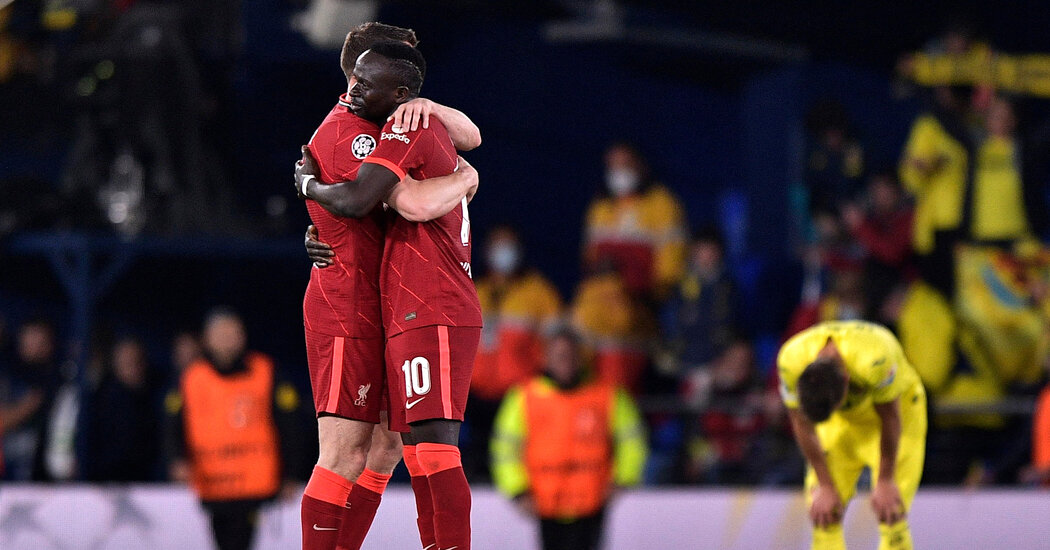
By halftime, its rhythm had been broken and its confidence sapped and then, just when it thought it might make it through, its advantage had disappeared completely. Capoue crossed, on purpose this time. Francis Coquelin headed home. Villarreal’s bench emptied onto the field, coaches and substitutes and sundry assistants all scarcely able to believe what they were seeing.
At that moment, tied at 2-2 halfway through the second leg, Villarreal’s players stood within touching distance. The final was there, right there, and they could seize a place within it. Villarreal would be the smallest town, by some distance, to send a team to the biggest game in soccer.
In an era defined and designed by Goliath, it would be this team, constructed on a shoestring, that did what Ajax and Monaco and RB Leipzig could not and made it all the way. And they could do it by etching their own entry in the Champions League’s ever-expanding book of eye-watering comebacks, a miracle to call its own, just like Barcelona (2017), Roma (2018), Liverpool (2019) and Real Madrid (passim).
Hope and belief exist at different points on the same axis. Villarreal, in the space of 45 minutes, had traveled all the way along it.
And then, just when it was there, within their grasp, it was taken away. Klopp took off one $45 million forward, Diogo Jota, and introduced another, Luis Díaz. The switch changed the momentum irrevocably. Trent Alexander-Arnold hit the bar. Díaz tried a spectacular overhead kick. And then Mohamed Salah slipped Fabinho through and his shot squirmed through Géronimo Rulli’s legs. In that moment, it was all over.
Five minutes later, Díaz had scored, drifting in to head a cross under Rulli. Five minutes after that, Sadio Mané had put Liverpool ahead on the night, latching on to a pass from Alexander-Arnold, darting past Rulli as he charged out of his goal and into midfield, and then calmly rolling the ball into the net.